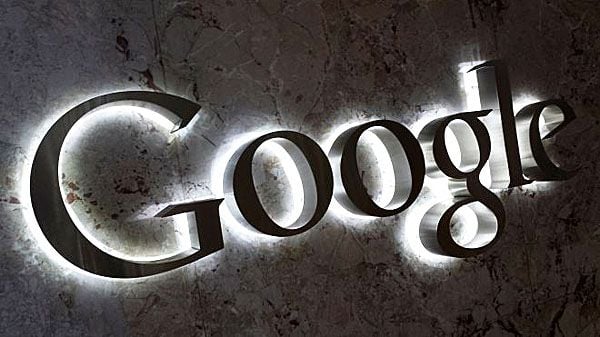
The European Commission has issued a long list of complaints against Google over its advertising procedures, announcing a roughly $3.2 billion fine to punish the American company.
And President Donald Trump has reacted with a warning, and a threat.
In fact, he’s suggesting that he could invoke Section 301 of America’s Trade Act, which gives the government “a range” of authorities “to investigate and take action (e.g. impose a tariff) to enforce U.S. rights under trade agreements and respond to certain foreign trade practices.”
JUST IN: Trump sends a WARNING to Europe after they hit Google with a $3.5 billion fine
Trump is considering invoking Section 301, essentially “NULLIFYING” unfair penalties on US companies
Europe should drop this, or they’re going to totally screw themselves over! pic.twitter.com/sO4Fmw6xQ8
— Nick Sortor (@nicksortor) September 5, 2025
A report at Courthousenews explains the European attack, the “hefty penalty” being the “tech giant’s fourth EU antitrust fine.”
The report explained, “The European Commission accused the California-based company of distorting competition in online advertising by systematically favoring its own services over rivals, harming competitors, advertisers and publishers across the bloc.”
Trump posted on social media, “Europe today ‘hit’ another great American company, Google, with a $3.5 Billion Dollar fine, effectively taking money that would otherwise go to American investments and Jobs. This is on top of the many other Fines and Taxes that have been issued against Google and other American Tech companies, in particular.”
He called it “Very unfair” and warned, “The American Taxpayer will not stand for it!”
If this continues, “I will be forced to start a Section 301 proceeding to nullify the unfair penalties being charged to these Taxpaying American Companies,” he said.
— Rapid Response 47 (@RapidResponse47) September 5, 2025
The European tech experts complained that Google’s control over multiple layers of the digital advertising ecosystem creates fundamental conflicts of interest.
The company, in fact, has a long list of various software programs in the ad industry, including operations that service advertisers seeking to place ads as well as publishers looking to sell ad space.
Terea Ribera, a spokeswoman for the European Commission, threatened publicly, “Google must now come forward with a serious remedy to address its conflicts of interest, and if it fails to do so, we will not hesitate to impose strong remedies.”
Google said it would appeal.
“The European Commission’s decision about our ad tech services is wrong and we will appeal. It imposes an unjustified fine and requires changes that will hurt thousands of European businesses by making it harder for them to make money,” said Lee-Anne Mulholland, a Google vice president.
The next step in the fight probably will be response from Google, due in November to the commission, which included in its statement a threat to try to force Google to sell parts of its business.
Courthousenews said, “The fine represents the latest escalation in Europe’s regulatory crackdown on major American technology companies. The EU executive previously issued preliminary charges against Google in 2023, suggesting that forcing the company to divest portions of its advertising technology operations might be necessary to restore fair competition.”
Internally, the EU has had conflicts.
In fact, EU Trade Commissioner Maroš Šefčovič days ago blocked a planned Google penalty over concerns it would hurt EU-U.S. trade negotiations.
Google, in fact, also faces cases raising concerns about its advertising operations inside the U.S.
“In April, a federal judge ruled that Google illegally monopolized parts of the advertising market, with a remedies hearing scheduled to begin Sept. 22. Separately, in a case focused on Google’s search monopoly, a federal judge ruled this week that the company must end exclusive search deals but will not be forced to sell Chrome or Android,” Courthousenews said.







